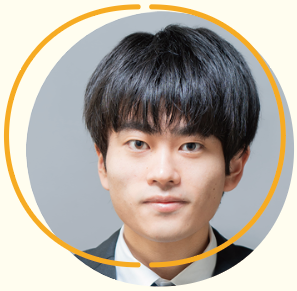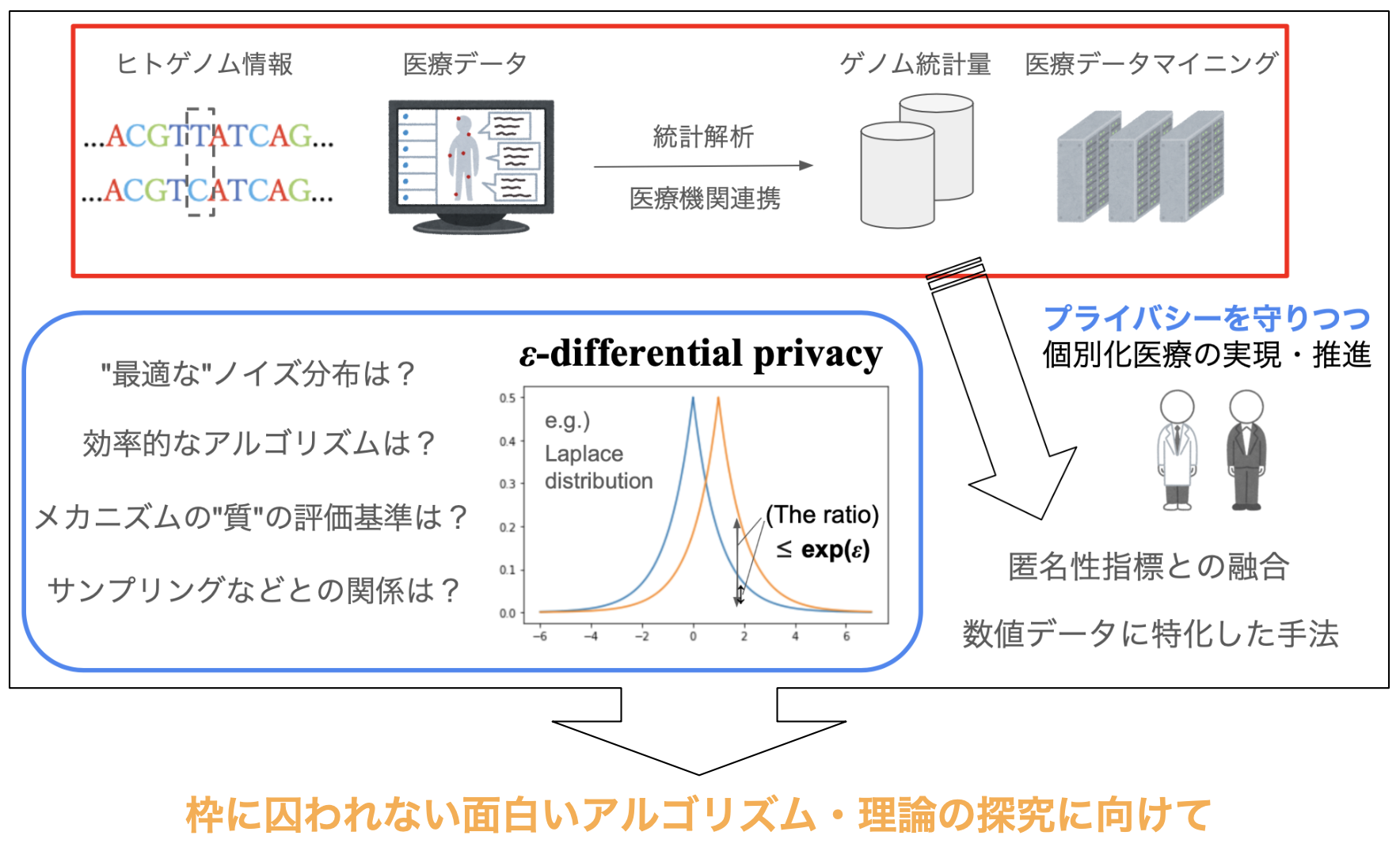Disclaimer: machine translated by DeepL which may contain errors.
~ Message from a graduate student~.
In Pursuit of Constant Interest
 |
| Akito Yamamoto |
| Graduate School of Information Science and Technology 1st Year Doctoral Student |
| Birthplace Hyogo Prefecture |
| High School Nada Private High School |
| Faculty Department of Information Science, Faculty of Science, The University of Tokyo |
First of all, I would like to say that my current position in the world of research is a result of sheer luck. It is not that I was originally interested in research, nor did I have a yearning to be a researcher. I do not have a brilliant mind or an original thought. What if the atmosphere in the laboratory to which I was first assigned did not suit me? If I had been given a research theme? If I had not entered the Department of Information Science in the first place. Looking back, I am where I am today thanks to the environment and people around me.
Having been led to such a blessed place, I cannot just spend my time thinking in my head and living in a vacuum. At the very least, I have a responsibility to make at least a small contribution to repay the favors I have received. The only thing I could do under such circumstances was to follow my heart, that is to say, to thoroughly face what moved me and made me feel interesting, and to create originality. And now, for me, that is "differential privacy. This is a concept that was born in the field of cryptology, which allows us to evaluate the difference between two similar data sets.
I am particularly interested in the "difference" rather than the "privacy" of differential privacy. Therefore, rather than epsilon-differential privacy, which is now widely recognized as the name of the definition, I prefer epsilon-indistinguishability, which was seen in the early days of epsilon-differential privacy. indistinguishability), which was seen in its infancy. In fact, this concept can easily be regarded as an assessment of the degree of indistinguishability of a type of data. Here, data can be more abstract, such as personal information or graphs in society. At present, it is mainly used to evaluate the level of privacy in the context of privacy protection, but I personally think that there may be other possibilities.
With the above motivations, I am currently working on the development of privacy protection technologies that utilize them, especially for large-scale genome statistical analysis and medical data sharing, based on my research for the enrichment of efficient algorithms and basic mechanisms in the world of differential privacy (Figure). The need for privacy protection is expected to increase in the future as health awareness increases and personalized medicine is realized and disseminated. In addition, genome information is said to be "the ultimate personal information," and its importance to society is extremely high. In dealing with large-scale data, there are still many interesting problems from an algorithmic point of view, and it is rare to find a new problem that makes one's heart beat wildly even if the context is ignored. Solving these problems and leaving them as work is the most exciting part of my research.

Overview of my research
In the recent years, there has been a lot of research in the machine learning field and the privacy and security area, aiming at improving the usefulness of methods for real data analysis and extending and evaluating methods for use in modern society. On the other hand, at least for me, the theory itself is not yet sufficiently mature, and I strongly feel the need to deepen the fundamentals more precisely than to consider applications and utilization.
In fact, while actually tackling these issues, I have to admit that I am almost always disgusted by my own inability to do so. However, I believe that there is indeed an "unchanging interest" that does not depend on social trends, but can expand the possibilities of any society, and I would like to continue to face science sincerely and freely, even while struggling.


